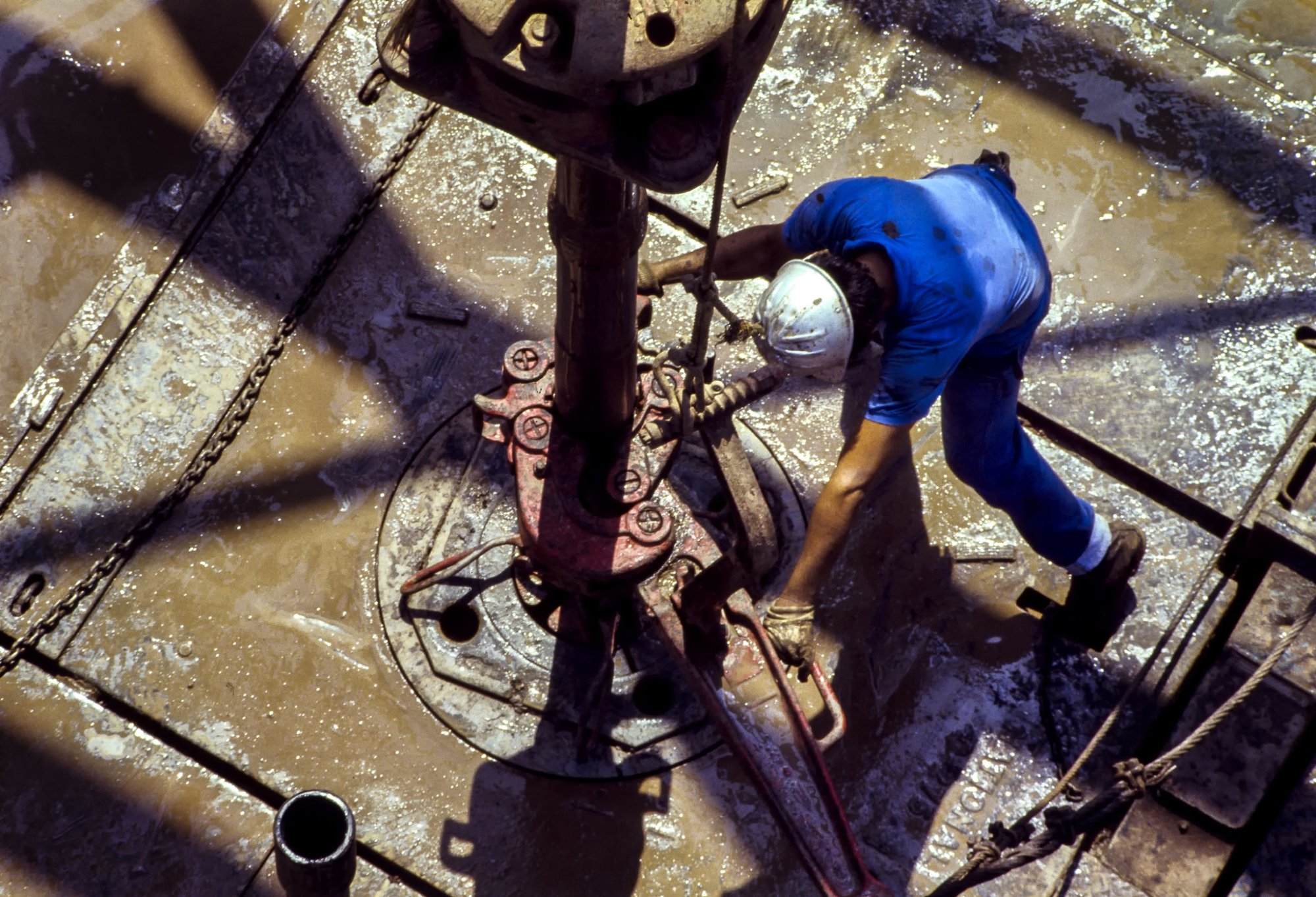
Drilling rig workers preparing to make a connection during drilling operation.
The 2010 Deepwater Horizon oil spill and subsequent film of the same name showcased the dangers of the oil and gas industry. The film’s main character, portrayed by Mark Wahlberg, also sheds light on the male-dominated nature of the oil industry. However, women have played a pivotal role in the fields as well. Amidst a literal ocean of men, Brandy Bell proves that societal barriers are only for those that believe in them.
Bell, 45, is the mother of two adult children from Brazoria County, Texas, and once graced the cover of a Houston motorcycle magazine. She is by no means the stereotypical oil and gas industry worker. Despite being a cover model, Bell has had no problem lacing up steel-toed boots and donning coveralls in her career.
Bell attributes a portion of her work ethic to having raised a family before earning a degree later in life.
“I had kids early,” she said, “so I was a stay-at-home mom until I went to college when I was 33 years old.”
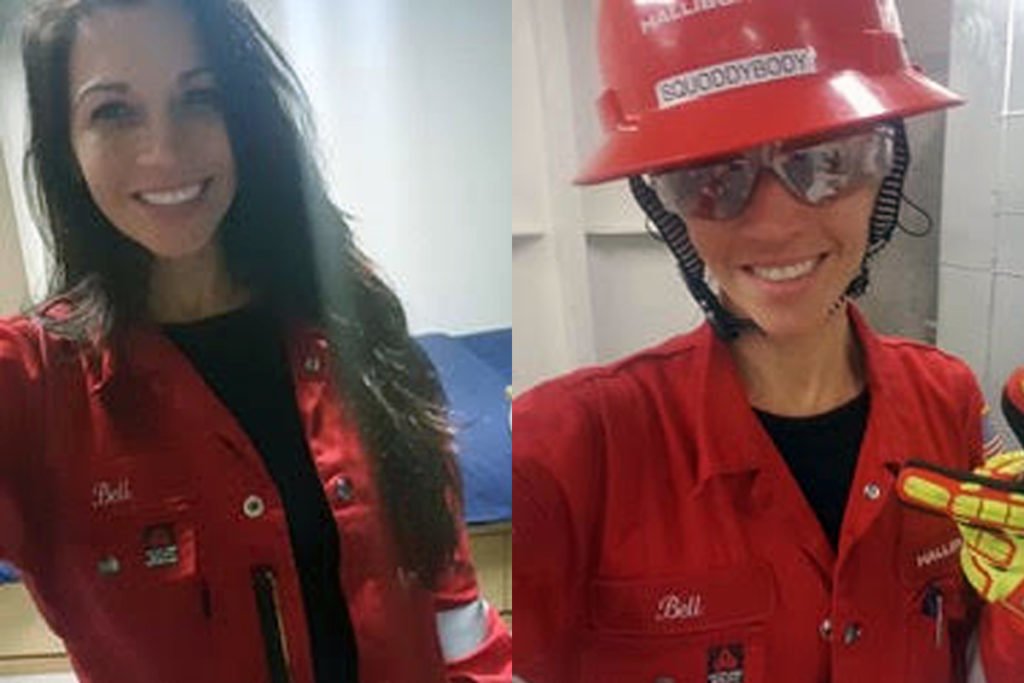
The coursework that Bell tackled at university helped catapult her into the oil and gas industry. Throughout her collegiate career, she knew the standard 9-to-5 office job would not be fulfilling for her, which was quickly confirmed following graduation.
“I graduated college in 2013 with a B.S. in geology and environmental chemistry,” Bell said. “My first job out of the gate was when I worked as a chemist for a few months. It was absolutely terrible — I hated it.”
Bell started looking for geology field work so she could get out of the office. It was during this time that Bell realized how male-dominated her chosen career field was.
“At first I was told I was too feminine and too girly for fieldwork. ‘You’re going to be working with men in coveralls and union men. This may not be the environment,’” Bell recalled being told by people in charge of hiring.
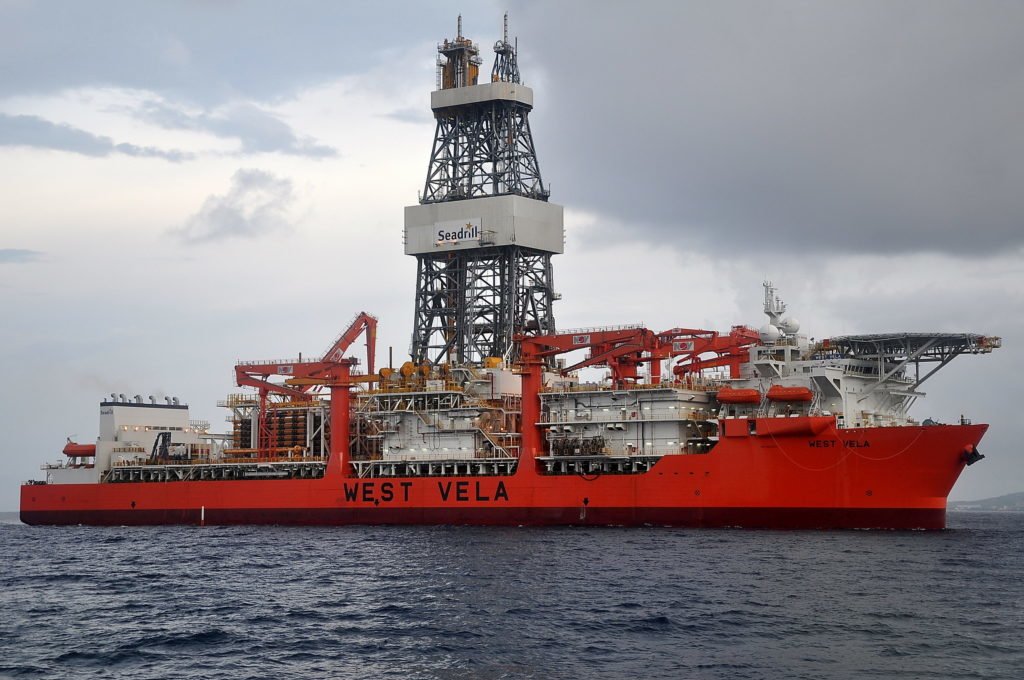
Though many organizations had yet to hire women and the fact that many oil rigs and platforms did not even have accommodations for women, Bell continued to network and interview for work.
Her resolve ultimately paid off. Bell’s educational background and brief experience as a chemist eventually landed her a job as a mud logger at Halliburton.
“I was excited when I first got the job,” Bell said. “Essentially, I was going to be one of the people that would help prevent the next Deepwater Horizon incident.”
Mud loggers collects and analyzes gas samples; their primary job is that of safety and risk mitigation. Bell monitored gas on the rig while also looking at the cutting samples of various types of stone that would come up from the wells. Her primary responsibility was to look for anything that could be wrong in the data that would allude to a potential problem with drilling.
“At first I was told I was too feminine and too girly for fieldwork. ‘You’re going to be working with men in coveralls and union men. This may not be the environment.’”
Bell was very clear that rig life isn’t glamorous. The platforms that Bell worked on as a mud logger for five years were predominantly in the Gulf of Mexico. Isolation is one of the main elements that can drive people away from this line of work. During her first six months on the job, she had a 62-day stint on a rig.
“Nobody on the rig liked the movie [‘Deepwater Horizon’],” Bell said. She went on to explain that the film leaves out the daily life of mud loggers being isolated from friends and family, no cell phone reception, and the relative monotony of conducting day-to-day equipment maintenance.
But those years of invaluable experience prepared Bell for her current position as a well-monitoring specialist. Though equally demanding and carrying similar responsibilities, her new position doesn’t require her to be out on a platform for months at a time or conduct equipment maintenance. Bell may be back in an office, but it’s definitely not a 9-to-5 job
Bell works for 14 days, then gets 14 days off. Her shifts are from 8 PM to 8 AM, plus the handovers she conducts with the outgoing and incoming staff. This amounts to a standard 91-hour work week — but she loves it.
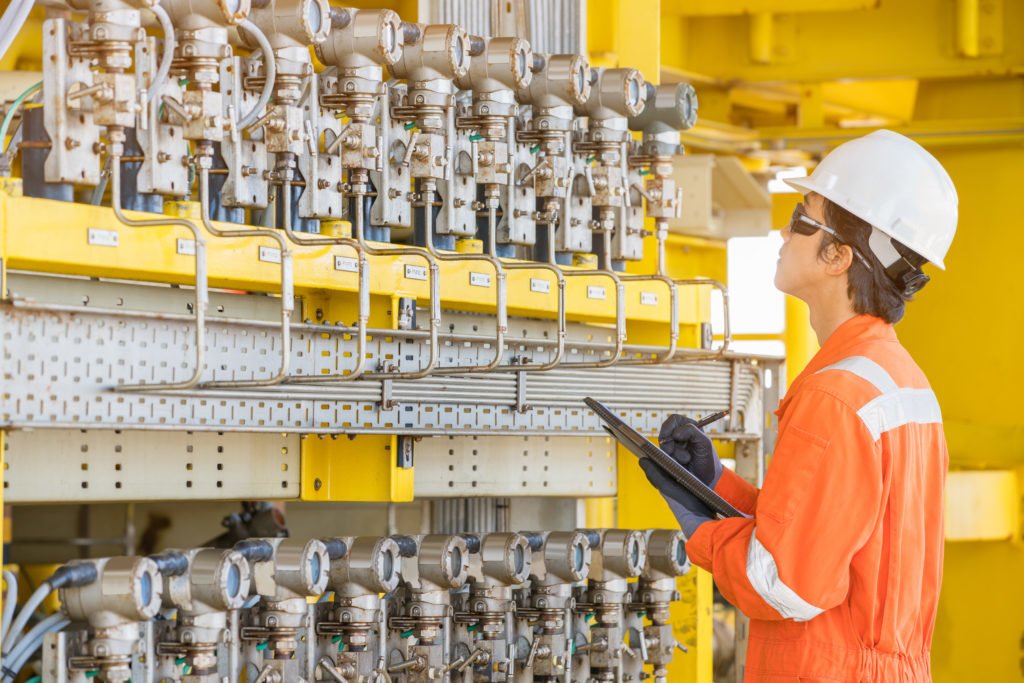
“I will do this as long as they will have me — it’s a rewarding job,” Bell said. “I’m saving lives by preventing errors.”
Despite it being a male-dominated field, Bell didn’t let that deter her from pursuing her dream.
“I am a feminist. I really believe in promoting jobs for females that are not typically feminine,” she said. “Just because you are a certain gender should not be a deciding factor in allowing you to pursue a career.”
Regarding the potential “locker room” culture, she said it was more protective than predatory.
“For every one man that was inappropriate to me, there were about 150 that would throw him overboard.”
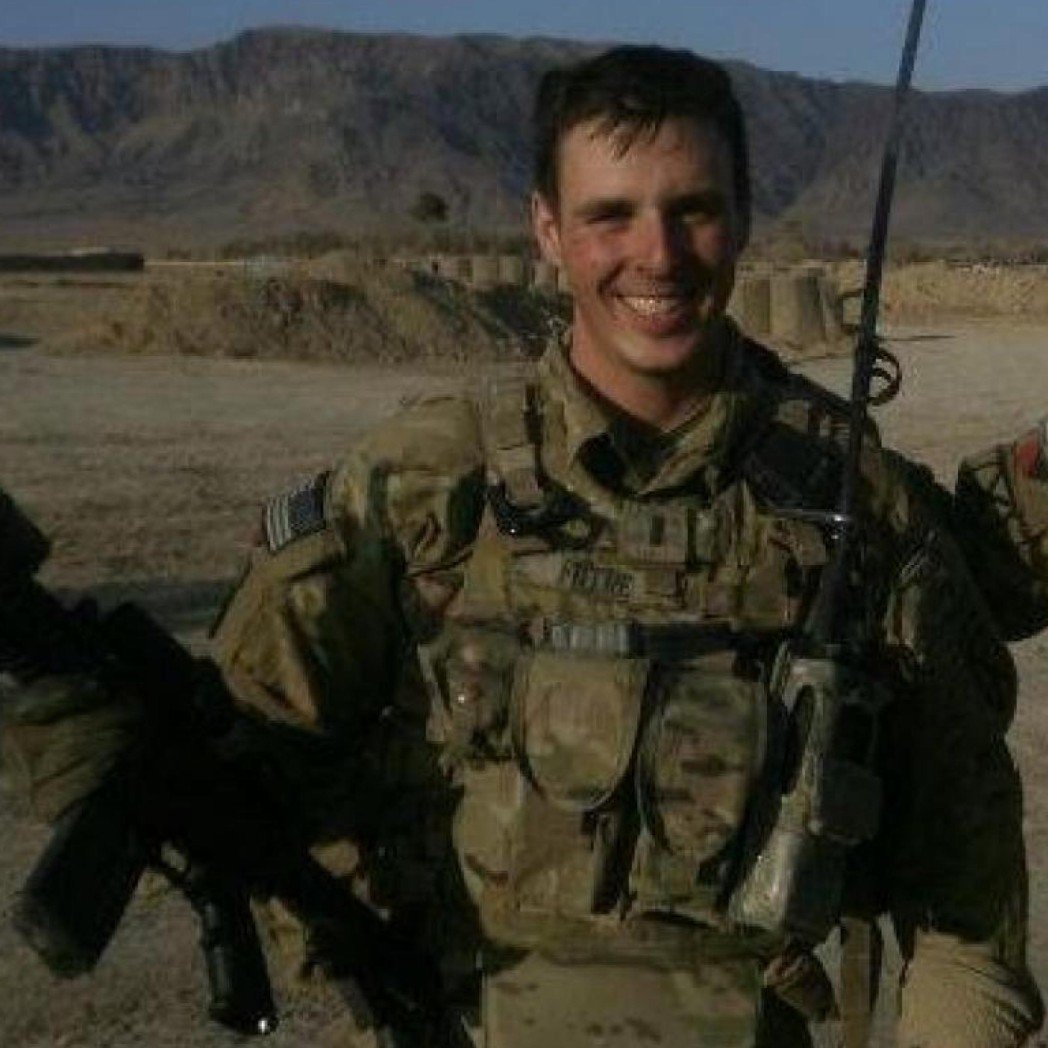
Neil Fotre is a contributing writer for Coffee or Die, and former U.S. Army Armor Officer. He has served operational deployments in South Korea and Afghanistan. Neil earned a master’s degree in journalism from the Medill School of Journalism at Northwestern University. He covers military and veteran community topics. His writing has been featured in the Military Times, Forbes, the Daily Beast, Task and Purpose and Business Insider. In between pounding his fingers on a keyboard, he is constantly glugging away on seltzer water and sipping on dark roast… pinky out.
BRCC and Bad Moon Print Press team up for an exclusive, limited-edition T-shirt design!
BRCC partners with Team Room Design for an exclusive T-shirt release!
Thirty Seconds Out has partnered with BRCC for an exclusive shirt design invoking the God of Winter.
Lucas O'Hara of Grizzly Forge has teamed up with BRCC for a badass, exclusive Shirt Club T-shirt design featuring his most popular knife and tiomahawk.
Coffee or Die sits down with one of the graphic designers behind Black Rifle Coffee's signature look and vibe.
Biden will award the Medal of Honor to a Vietnam War Army helicopter pilot who risked his life to save a reconnaissance team from almost certain death.
Ever wonder how much Jack Mandaville would f*ck sh*t up if he went back in time? The American Revolution didn't even see him coming.
A nearly 200-year-old West Point time capsule that at first appeared to yield little more than dust contains hidden treasure, the US Military Academy said.












